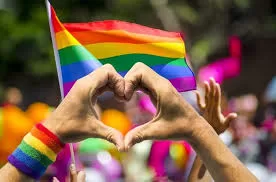In a significant legal development, the Supreme Court of India is poised to deliver its judgment on the petitions that seek the legal acknowledgment of same-sex marriages. The matter was presented before a five-judge Constitution bench, presided over by Chief Justice of India D Y Chandrachud, back in May. The verdict had been reserved at that time.
During the proceedings, one of the bench members, Justice S R Bhat, emphasized a constitutional doctrine that the Court has upheld consistently: the judiciary cannot dictate legislation, intervene in policymaking, or direct the framing of policies. Nevertheless, the petitioners contended that marriage encompasses a multitude of rights, privileges, and responsibilities safeguarded by the law.
Adding to the discourse, the Delhi Commission for Protection of Child Rights (DCPCR) filed an intervention application in support of recognizing such marriages. Their application aimed to assist the Court in understanding the implications of these marriages on children.
Conversely, various respondents, including the Central government, the National Commission for Protection of Child Rights (NCPCR), and an organization of Islamic scholars called the Jamiat-Ulama-i-Hind, stood in opposition to the petitions.
The final verdict will be pronounced by the Supreme Court on October 17, 2023.
This development marks a pivotal moment in India’s legal landscape, where the issue of legal recognition for same-sex marriages is under scrutiny. The Court’s ruling will have far-reaching consequences, impacting the rights and privileges of same-sex couples in the country.







